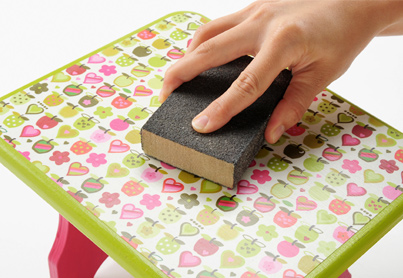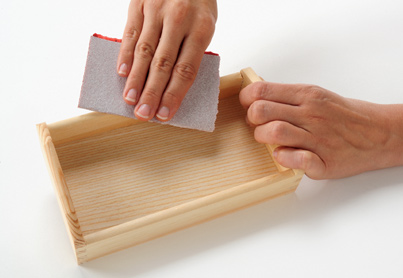
Ever wanted to create your own decoupage projects but don't know where to start? Learn the Mod Podge basics with us!
Prepare your surface. Almost any surface can be used to create a decoupage project. Suitable surfaces include wood, paper mache, terra cotta, tin, cardboard, glass and craft foam. Only SOME plastics are suitable for decoupage – we recommend testing a small area before completing your entire project to make sure that the Mod Podge will adhere.

Base-coat your surface (optional step). Many items need to be base-coated before decoupaging if your surface is unfinished. We recommend FolkArt or Apple Barrel Acrylic Paints for base-coating.
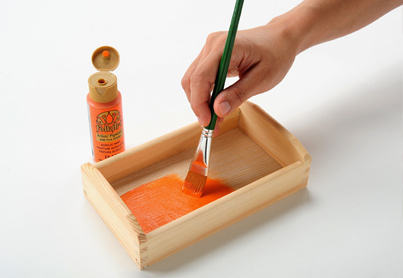
Prepare Items to be Mod Podged. Here a few tips you should know before beginning.
- Fabric – Wash and dry the fabric (do not use fabric softener). Iron and then lay out on a covered work surface.
- Wax paper is preferable for covering your table. Using a brush, paint a light coat of Fabric Mod Podge onto your fabric.
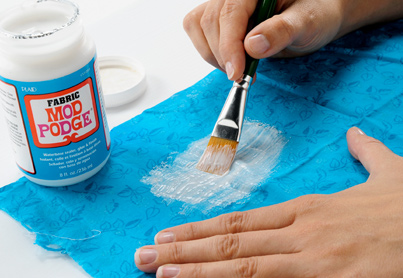
Allow to dry. This will allow you to cut the fabric like paper without frayed edges.
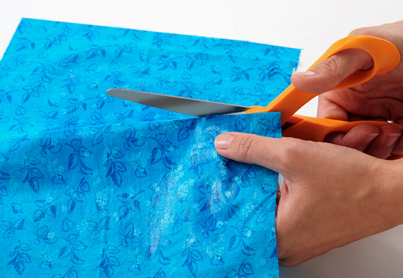
- Paper – Most items, especially thicker papers, are ready to be Mod Podged as is. If you are working with thinner sheets of scrapbook paper, it may help to spray your paper with a clear acrylic sealer before Mod Podging. Spray both sides and allow to dry before using.
- Tissue Paper – There is nothing that you need to do to prepare tissue paper, but just be advised that because it is so thin, it is very difficult to Mod Podge without wrinkles. The good news is that wrinkles are typically part of the charm of using tissue paper and add a little character to your surface. Mod Podge tissue paper carefully so that it doesn’t tear. Cut out your paper or whatever it is that you are planning to decoupage. Experiment with design elements to determine the layout of your piece. Add interest to your design by using large and small pieces, layering and overlapping elements and coordinating colors.
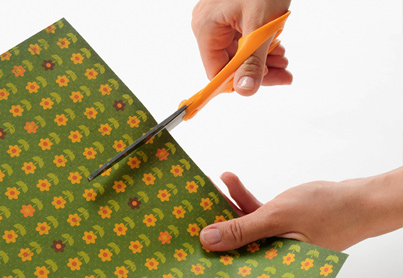
Adhere each element with the Mod Podge finish of your choice. Always start with the underlying design elements and work your way upward. Apply a medium coat of Mod Podge to the surface. Too little Mod Podge and you will get wrinkles – you can always wipe away excess Mod Podge. Place your item(s) to be decoupaged on top of the Mod Podge and smooth thoroughly.
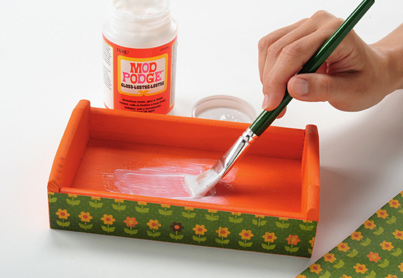
Keep smoothing until all of the bubbles are removed.
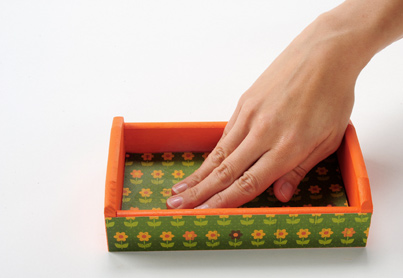
When working with large pieces, smooth from the center outward. Air bubbles can be removed with the Mod Podge Tool Set. Use the squeegee with smaller items such as trays – it was developed specifically for getting into corners.
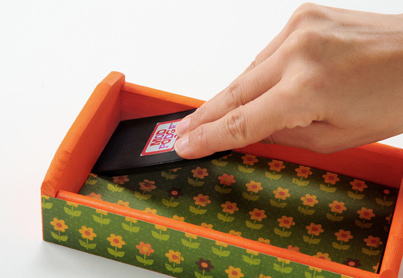
Use a brayer for larger items such as furniture.
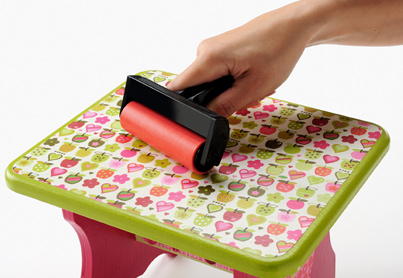
Add a protective coat of Mod Podge to your project using a sponge or flat brush. Allow to dry and then repeat. The number of coats you finish with is up to you, but we recommend at least two.
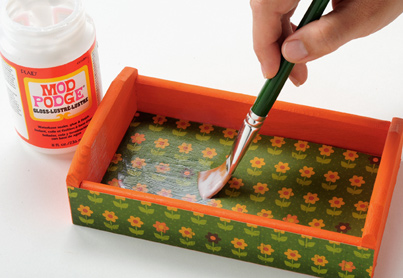
For a very smooth finish, wet a piece of #400 grit sandpaper with water and sand lightly between coats. Wipe dry and polish with #0000 steel wool on the final coat.
